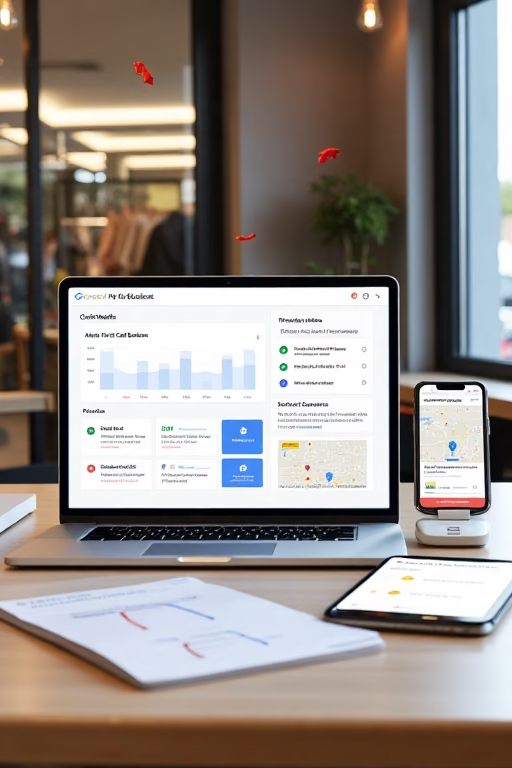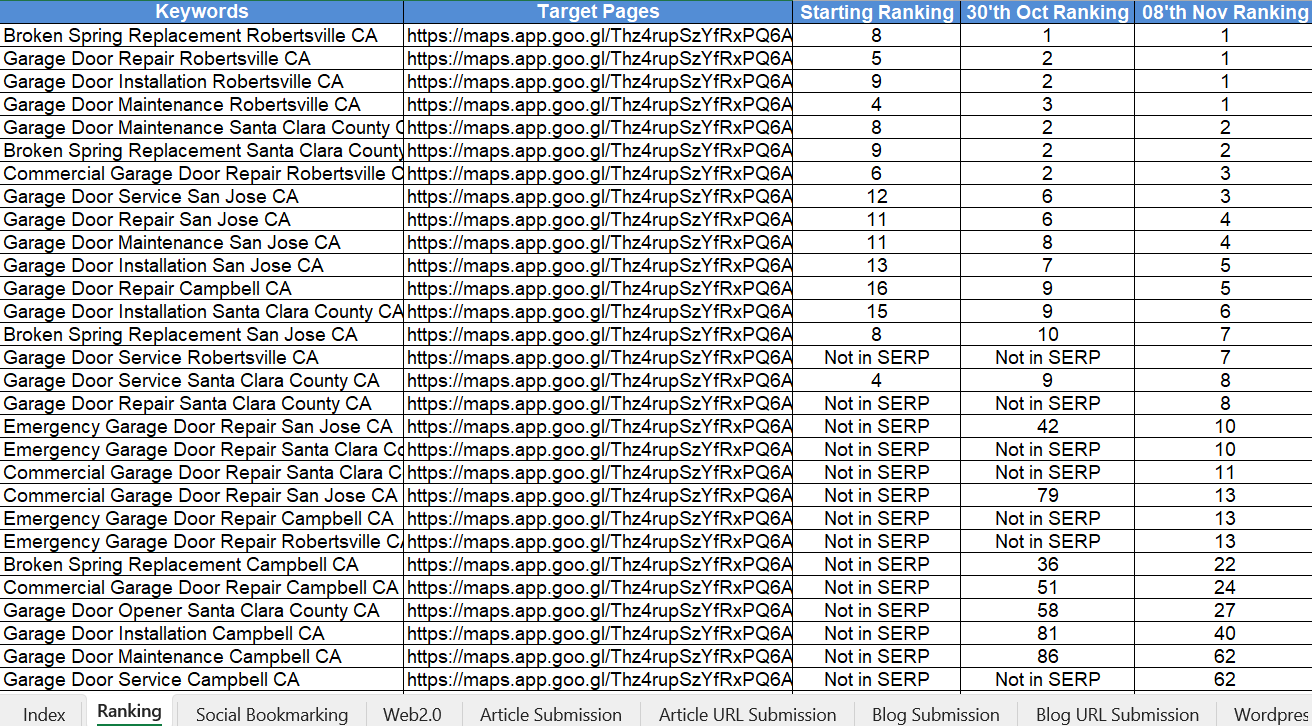Local SEO Tools for Contractors That Actually Work
Local SEO Tools for Contractors That Actually Work
Pro Contractor SEO Solutions by Market Wiz AI
Table of Contents
- Introduction: Local SEO Tools for Contractors That Actually Work
- 1. Why Contractors Need Local SEO Tools
- 1.1 Increased Visibility
- 1.2 Competitive Advantage
- 1.3 Lead Generation Efficiency
- 2. Keyword Research & Tracking
- 2.1 Contractor-Specific Keywords
- 2.2 ZIP Code-Level Rank Tracking
- 3. Citation & Listing Management
- 3.1 NAP Consistency Checkers
- 3.2 Automated Submission Platforms
- 4. Review & Reputation Tools
- 4.1 Review Generation & Monitoring
- 4.2 Sentiment Analysis
- 5. On-Page Optimization Tools
- 5.1 Content Audit & Suggestions
- 5.2 Technical SEO Scanners
- 6. Link Building Platforms
- 6.1 Local Sponsorship Outreach
- 6.2 Partnership Directories
- 7. Analytics & Reporting Tools
- 8. Implementation & Workflow Integration
- 9. Conclusion & Next Steps
- 25 FAQs
- 25 Extra Keywords
Introduction: Local SEO Tools for Contractors That Actually Work
Local SEO Tools for Contractors That Actually Work empower service-based businesses—plumbers, electricians, landscapers—to outrank competitors in local search and capture more qualified leads. In this guide, we’ll explore the top platforms and software that streamline keyword research, citation management, review monitoring, on‑page optimization, link building, and analytics—so you can focus on your craft while your phone rings off the hook.
1. Why Contractors Need Local SEO Tools
1.1 Increased Visibility
With 46% of all Google searches having local intent, contractors who optimize for local search are more likely to appear in the map pack and local results—driving foot traffic and service calls.
1.2 Competitive Advantage
Local SEO tools uncover low-competition keywords and citation gaps, helping contractors stand out in crowded markets and win more bids.
1.3 Lead Generation Efficiency
Automated review requests, rank tracking alerts, and reporting dashboards free up time, allowing contractors to focus on onsite work rather than chasing SEO tasks.
2. Keyword Research & Tracking
2.1 Contractor-Specific Keywords
Tools like SEMrush and Ahrefs provide local keyword suggestions—“emergency HVAC repair near me”—and search volume at the city or ZIP code level to target high-intent prospects.
2.2 ZIP Code-Level Rank Tracking
Platforms such as BrightLocal and LocalFalcon track your rankings across multiple ZIP codes, revealing which neighborhoods need more attention.
3. Citation & Listing Management
3.1 NAP Consistency Checkers
Services like Moz Local and Yext scan the web for your business Name, Address, and Phone inconsistencies, then push corrections to key directories automatically.
3.2 Automated Submission Platforms
BrightLocal’s Citation Builder and Synup streamline listings in hundreds of niche and general directories, ensuring rapid coverage and fewer manual entries.
4. Review & Reputation Tools
4.1 Review Generation & Monitoring
Reputation.com and Grade.us automate review requests via email or SMS, and aggregate feedback from Google, Yelp, and Facebook into a single dashboard for easy response.
4.2 Sentiment Analysis
Tools like ReviewTrackers analyze sentiment trends, highlighting common customer pain points so contractors can adjust services and marketing messaging accordingly.
5. On-Page Optimization Tools
5.1 Content Audit & Suggestions
Surfer SEO and MarketBrew provide AI-driven content recommendations for service pages—suggesting keyword density, semantic terms, and content length to improve local relevance.
5.2 Technical SEO Scanners
Screaming Frog and Sitebulb crawl your site to identify broken links, missing metadata, and mobile responsiveness issues that could hurt your local rankings.
6. Link Building Platforms
6.1 Local Sponsorship Outreach
BuzzStream helps contractors find and manage outreach to local blogs, chambers of commerce, and nonprofits for sponsorship links that boost authority.
6.2 Partnership Directories
Toolkits like BrightLocal’s Local Citation Finder reveal niche directories and partner sites where contractors can list services and earn contextual backlinks.
7. Analytics & Reporting Tools
Google Analytics and Search Console provide baseline data on traffic and queries. For local-specific insights, tools like DashThis and AgencyAnalytics offer customizable dashboards that combine GMB Insights, call tracking, and rank data in one view.
8. Implementation & Workflow Integration
Integrate your chosen tools via API or Zapier to automate tasks: weekly keyword reports, citation audits, and review alerts. Establish a monthly SEO checklist to review performance and adjust strategies for continuous improvement.
9. Conclusion & Next Steps
Local SEO Tools for Contractors That Actually Work are essential for scaling your service business in today’s competitive marketplace. Select a suite of keyword, citation, review, on-page, link building, and analytics tools, then automate your workflows to save time and drive consistent lead flow. Start with a free trial of one platform, measure impact, and expand gradually to cover all facets of your local SEO strategy.
25 Frequently Asked Questions
1. What are the best keyword tools for contractors?
SEMrush, Ahrefs, and BrightLocal provide localized keyword suggestions and rank tracking by ZIP code.
2. How do I ensure NAP consistency?
Use Moz Local or Yext to scan directories and automatically update your business information.
3. Which tools automate citations?
BrightLocal’s Citation Builder and Synup streamline submissions to hundreds of directories.
4. How can I generate more Google reviews?
Reputation.com and Grade.us automate SMS/email review requests after service completion.
5. Do on-page tools help local rankings?
Yes—Surfer SEO and MarketBrew optimize service page content for local intent and keywords.
6. What technical SEO scanners are recommended?
Screaming Frog and Sitebulb identify crawl errors, mobile issues, and metadata gaps.
7. How do I find link opportunities locally?
BuzzStream and BrightLocal help locate local blogs, nonprofits, and chamber sites for sponsorship links.
8. Which analytics tools show local performance?
DashThis and AgencyAnalytics combine GMB Insights, call tracking, and rank data into dashboards.
9. Can I integrate these tools automatically?
Yes—use APIs or Zapier to connect platforms and automate reporting workflows.
10. How often should I audit citations?
Conduct citation audits quarterly to catch manual changes and new inconsistencies.
11. Do I need all these tools?
Start with core functions—keyword research, citations, and reviews—then expand as your SEO matures.
12. Are these tools affordable?
Many offer tiered pricing or free trials—contractors can choose plans based on volume and features needed.
13. How do I measure ROI?
Track lead volume, calls, and revenue before and after tool implementation to calculate ROI.
14. What’s the difference between citations and backlinks?
Citations are directory listings of your NAP data, while backlinks are clickable links from external sites to yours.
15. Can tools monitor competitor rankings?
Yes—BrightLocal and SEMrush allow you to track competitor positions in local search results.
16. How do I fix negative reviews?
Use reputation tools to respond quickly, offer resolution, and encourage satisfied customers to leave balanced feedback.
17. Do I need a website to use these tools?
While a website helps, citation and review tools can boost visibility even with minimal web presence.
18. How long before I see results?
Initial ranking gains often appear in 4–8 weeks; significant lead increases typically occur within 3 months.
19. Can I manage multiple service areas?
Yes—most tools support tracking and listings across multiple locations or ZIP codes.
20. How do I choose the right mix?
Assess your biggest gaps—in keywords, citations, reviews—and start with tools that address those first.
21. Are mobile optimizations included?
Screaming Frog and Sitebulb check mobile performance, and content tools ensure pages load fast on smartphones.
22. What local SEO trends should I watch?
Voice search, AI-driven content optimization, and hyperlocal targeting are key emerging trends.
23. Can I automate review responses?
Some platforms offer templated responses and alerts to help you reply quickly, though personal touches are best.
24. How do I maintain tools efficiently?
Set up monthly or quarterly audits and automated reports to keep on top of changes without manual checks.
25. Where can I learn more?
Visit Market Wiz AI’s blog and resource center for in-depth tutorials, case studies, and live demos.
25 Extra Keywords
- contractor SEO tools
- local search software
- citation management for contractors
- review monitoring tools
- keyword tracking by ZIP
- BrightLocal contractor SEO
- Moz Local review
- Yext citation service
- Surfer SEO local
- Screaming Frog plumber SEO
- BuzzStream outreach
- AgencyAnalytics dashboard
- Rank tracking contractor
- LocalFalcon zip code
- Grade.us review management
- ReviewTrackers sentiment
- Sitebulb technical SEO
- API SEO integration
- Zapier SEO workflows
- GMB Insights tools
- Google Search Console local
- voice search optimization
- hyperlocal targeting
- mobile-first SEO
- AI SEO recommendations
Local SEO Tools for Contractors That Actually Work Read More »







4. Optimize Social Media Profiles
4.1 Facebook & Instagram
Complete your business page with location details, categories, and call-to-action buttons. Regularly post local content and tag your city to boost discovery.
4.2 LinkedIn & Twitter
On LinkedIn, set your business location and industry. On Twitter, use local hashtags (#YourCityBusiness) and pin important updates to the top of your profile.